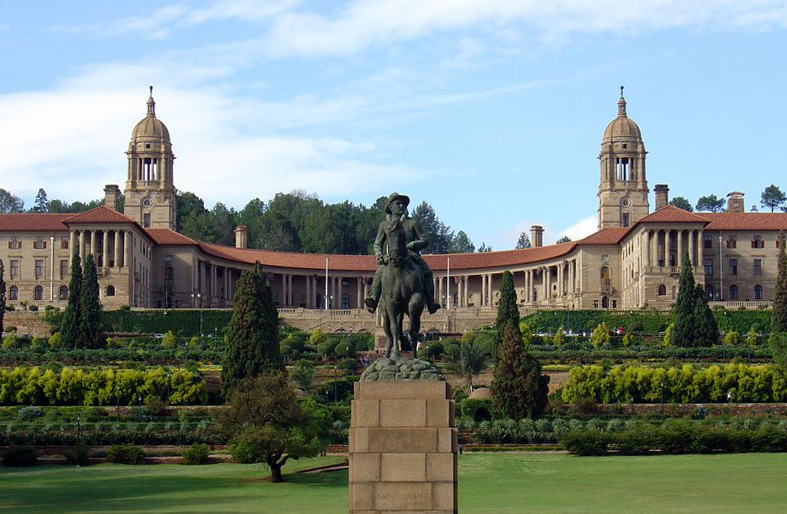Foreign Ministry Trip to South Africa Could Mark Diplomatic Turning Point

There is reason to be cautiously optimistic about an improvement in relations with South Africa, according to Foreign Ministry Director-General Dore Gold, speaking after a three-day visit there.
Gold met with his counterpart in Pretoria, Jerry Matjila, visited the University of the Witwatersrand and Nelson Mandela’s home in Soweto and met with Jewish leaders during the visit. It marked the first visit to the country by an Israeli diplomatic official of his rank in a decade.
“The meetings were a very important start. To say that we’re about to have a completely different relationship is premature. But there was a readiness to hear our arguments,” Gold told The Times of Israel. “There’s potential. Now, everything is in the follow-up.”
South Africa has been a leading critic of Israel, and is the birthplace of the boycott Israel movement.
Much of the hostility toward Israel stems from the legacy of apartheid and comparisons — however erroneous — between the former racial oppression in South Africa and Israel’s struggle against Palestinian terrorism, which has necessitated harsh measures.
Gold addressed the issue by emphasizing the role of many Jews in the ANC’s fight against the apartheid regime.
“I said that we have to understand each other’s narratives,” Gold said, adding that he deliberately visited places where he could pay his respects to the country’s struggle against apartheid, like the Liliesleaf Farm, where Mandela hid and where 19 others were arrested by the white South African authorities in 1963.
Israel’s support for the apartheid regime for decades “wasn’t brought up,” Gold noted, itself a significant sign of the current leadership’s interest in better relations.
During his visit, the two sides agreed to strengthen bilateral ties, but no agreements were signed.
“It was a consultation meeting and no agreements were signed. The meeting was taking place at an administrative level,” said Clayson Monyela, a spokesperson for South Africa’s Foreign Ministry.
To Read The Full Story
Are you already a subscriber?
Click "Sign In" to log in!

Become a Web Subscriber
Click “Subscribe” below to begin the process of becoming a new subscriber.

Become a Print + Web Subscriber
Click “Subscribe” below to begin the process of becoming a new subscriber.

Renew Print + Web Subscription
Click “Renew Subscription” below to begin the process of renewing your subscription.












